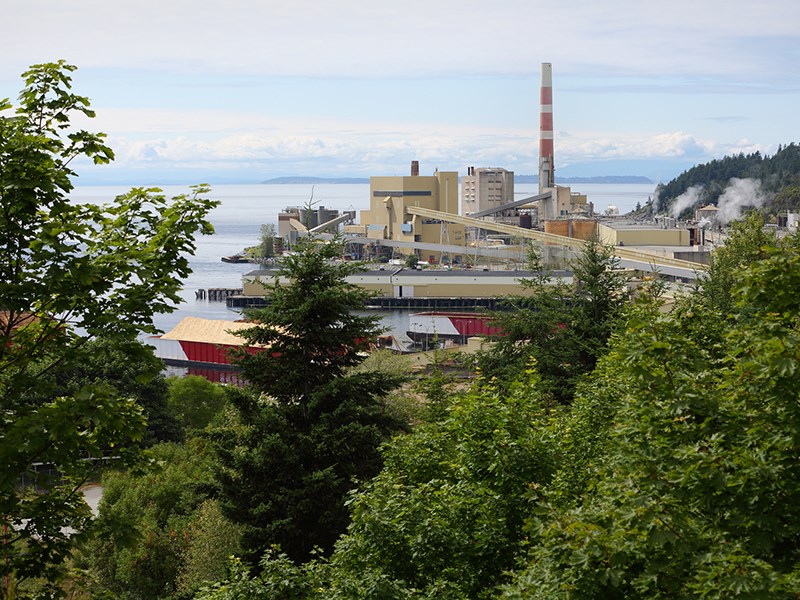UPDATED AT 7:45 AM WEDNESDAY, APRIL 25
An invitation to a high-level meeting in Victoria about Catalyst Paper Corporation on April 19 came from BC minister of jobs, trade and technology Bruce Ralston, but it was premier John Horgan’s event, according to City of Powell River mayor Dave Formosa.
Horgan chaired the meeting that ended with a united front intent on getting the federal government to pay the same attention to the protectionist trade war being waged by the United States against the newsprint industry as it has to Canada’s steel and aluminum industry.
“We're concerned,” said Formosa. “Are they working hard enough and do they realize how many jobs are at stake in BC? It's 1,800 direct jobs, but it’s 6,000 indirect jobs. It's a united front and things are being done, but we need to step it up.”
Only one item was on the meeting agenda: the recent determination by the United States Department of Commerce to impose duties of more than 28 per cent on Catalyst’s exports of uncoated groundwood paper.
The fact that Horgan led the meeting, the urgency under which it was called and the stakeholders in attendance underscored the seriousness of Catalyst’s business sustainability and the importance the province is placing on the issue.
Formosa said the NDP government, including ministers and MLAs, as well as mayors from communities most directly affected by challenges currently facing Catalyst, and union executives received a status update from the paper company’s president and chief executive officer Ned Dwyer.
“We got an overview from Ned Dwyer where the company is at, how it's affecting them and what its major issues are,” said Formosa. “The premier talked about what the province has done so far and what they're going to continue to do, and then from there we all discussed what we could do to step it up.”
Powell River-Sunshine Coast-MLA Nicholas Simons said the meeting demonstrated solidarity between parties that strongly believe the “unfair tariffs” need to be fought.
“We're unified in our voice, hoping the federal government continues to lobby the US government hard on this issue,” said Simons. “Obviously it's concerning to all of our communities affected.”
Simons added that the premier and Ralston will continue discussions with Canada’s foreign affairs minister Chrystia Freeland. Both Simons and Formosa said US ambassador Kelly Craft has been fully briefed on Canada’s position.
In addition to steps the premier and provincial ministers will take and action planned by Unifor, the largest private sector union in Canada that also represents Catalyst workers, Formosa said mayors will be lobbying the Trudeau government “in conjunction with them all and that could mean us going to Ottawa and meeting with the western Liberal caucus.”
Not only has Catalyst been hit by US anti-dumping duties, but a shortage of fibre has recently forced Catalyst to curtail production on paper machine 11 at the Powell River mill. That action is in effect from April 17 to May 7.
Mill-town communities facing uncertainty about their major employer include Powell River, Port Alberni and North Cowichan.
“The situation facing paper producers is very, very serious and the response from the province and federal government reflects that,” said Simons. “The workers are very concerned, the company is very concerned and our communities are concerned because the industry has been the cornerstone of economic success for many years and there's no reason that should change, especially when the current issue is the result of unfair trade practices.”
The province’s contingent also included BC Green Party leader Andrew Weaver; minister of forests, lands, natural resource operations and rural development Doug Donaldson, BC Liberal Party and opposition leader Andrew Wilkinson and deputy ministers.



